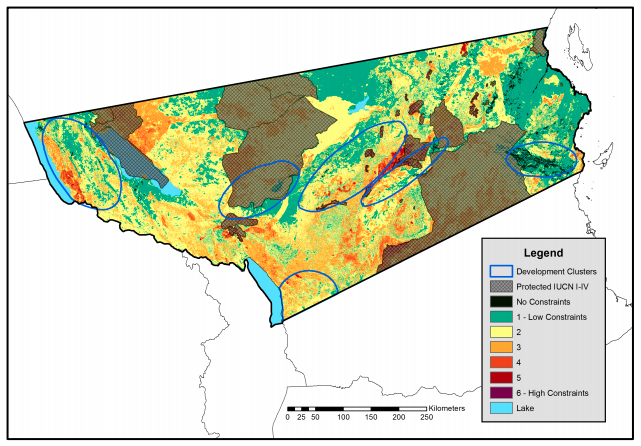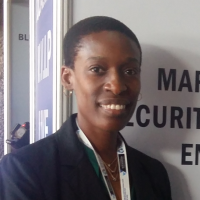Teams Like This
Agriculture is a major part of Tanzania’s economy, yet its expansion into wild lands poses a big risk to the country’s conservation efforts. To mitigate ecological losses while stimulating the economy and promoting food security, agriculture could be intensified in specific places that minimize tradeoffs to natural areas. This SNAPP team examined areas within the Southern Agricultural Growth Corridor of Tanzania (SAGCOT) Corridor to determine where intensification is economically viable and evaluate tradeoffs between agricultural development and maintenance of ecosystem services and biodiversity.
OUR APPROACH: Through the development of land-use and water tools and investor guidelines, the team provides the first step towards improved agricultural livelihoods, maintained ecosystem services, and responsible investment within the SAGCOT.

Final Report: Encouraging Green Agricultural Development in the SAGCOT Region of Tanzania
In 2016, the team submitted a final report to the SAGCOT Centre, a coordinating body that serves as an information and communication hub for the SAGCOT Partnership. The tools and guidelines for intensification developed by the SNAPP working group are the first steps in obtaining food security, green growth, and positive economic impacts in the SAGCOT. Components of the report included:
Sustainable Land Use
- Multi-criteria evaluation and online mapping tool that provides agricultural development planners with an analysis of agricultural intensification opportunities and constraints.
Water Use
- Water use model that provides information to water permitting agencies on water supply and flow as well as areas vulnerable to erosion within the SAGCOT.
Investor Guidelines
- Environmental and Social Performance Investment Screen: a straightforward tool for investors designed to facilitate an informal exchange of environmental and social goals, best practices, and sources of information.

“Providing a checklist to investors helps them follow a ‘green growth’ strategy with social issues in mind.”
– Lucy Magembe, Project Co-Leader
The result from this working group sparked a project from the research group CIGAR aimed at promoting sustainable intensification in a large agricultural landscape of the Tanzanian Ihemi cluster by generating information for dialogue in evidence-driven processes for planning sustainable development.
The working group’s final report containing the results of their work in the SAGCOT, focusing on sustainable land and water use as well as investor guidelines.
The Nature Conservancy
The Nature Conservancy
EcoAgriculture Partners
Indaba Agriculture Policy Research Institute, Lusaka, Zambia
Tanzania Agriculture Non-State Actors Forum
Mosaic
World Wildlife Fund
The Nature Conservancy
The Nature Conservancy
Wildlife Biologist
International Center for Tropical Agriculture (CIAT)
Tanzania Forest Conservation Group
World Wildlife Fund
Rufiji Basin Water Board (Tanzania)
Pollination Group
Silverlands (Tanzania) Limited
Sokoine University of Agriculture
SAGCOT Centre Limited
Wildlife Conservation Society
Alliance for a Green Revolution in Africa
The Nature Conservancy
International Union for Conservation of Nature (IUCN)
International Center for Tropical Agriculture (CIAT)
Sokoine University of Agriculture
World Wildlife Fund
EcoAgriculture Partners
Cargill
Wildlife Conservation Society